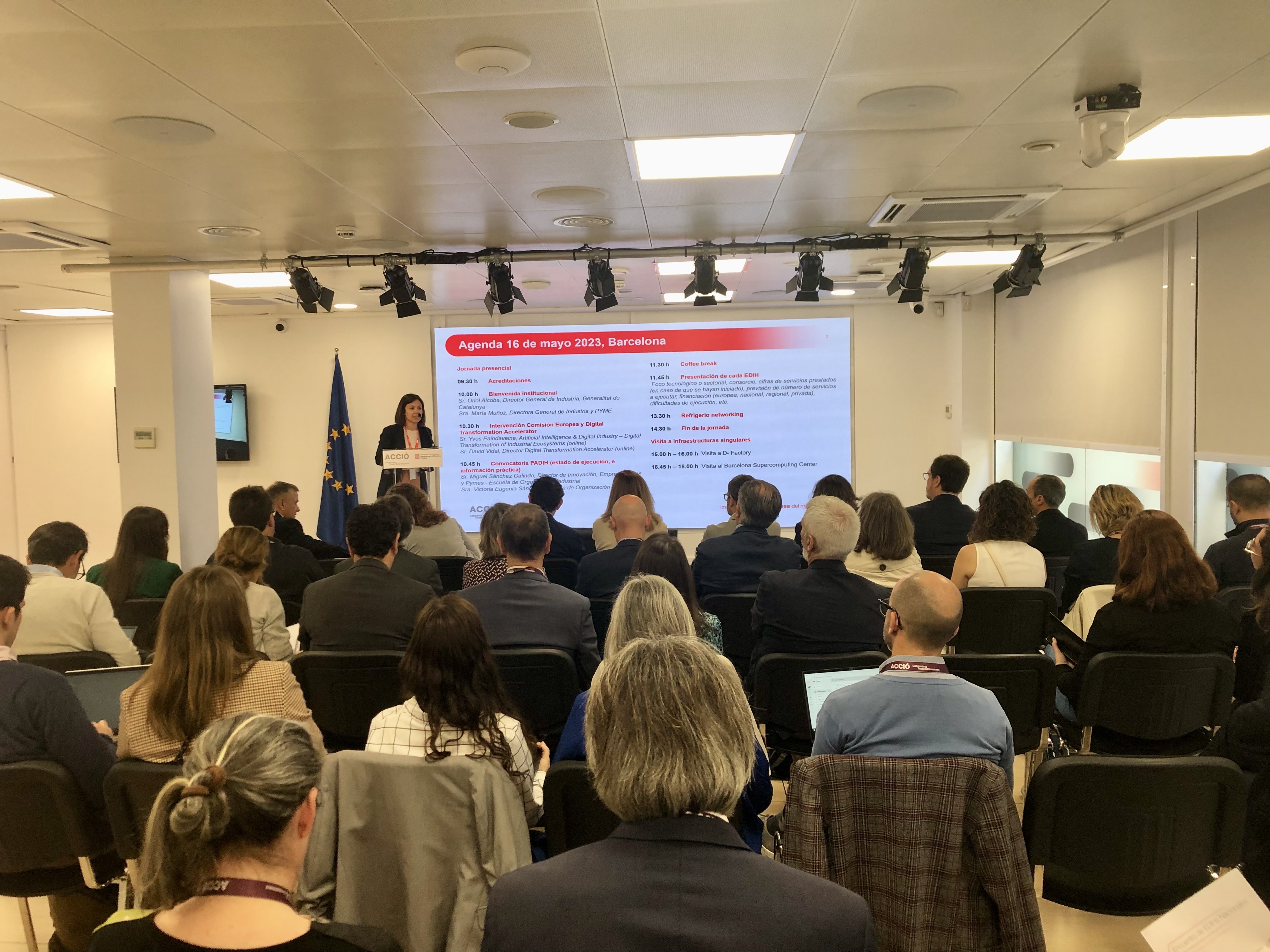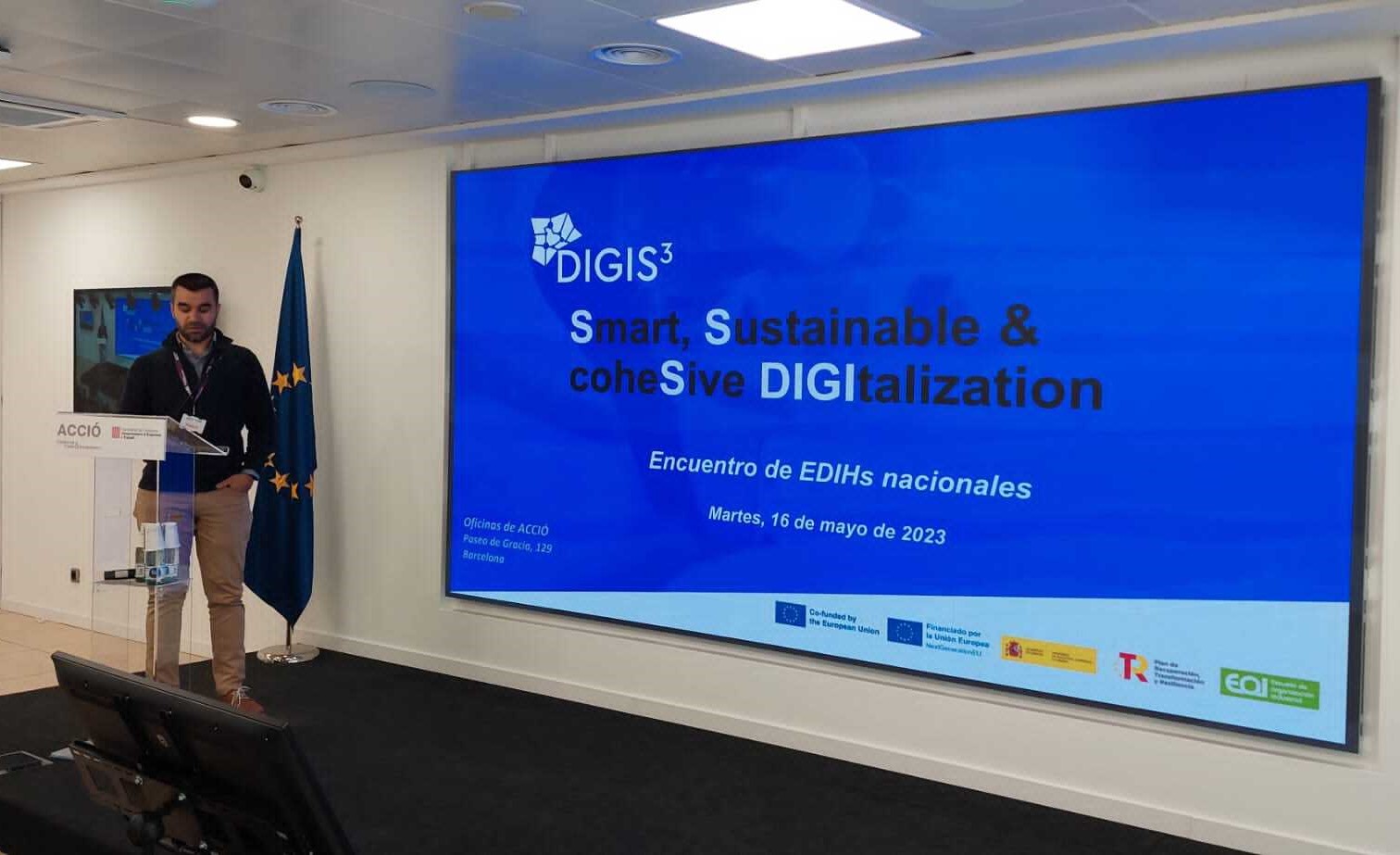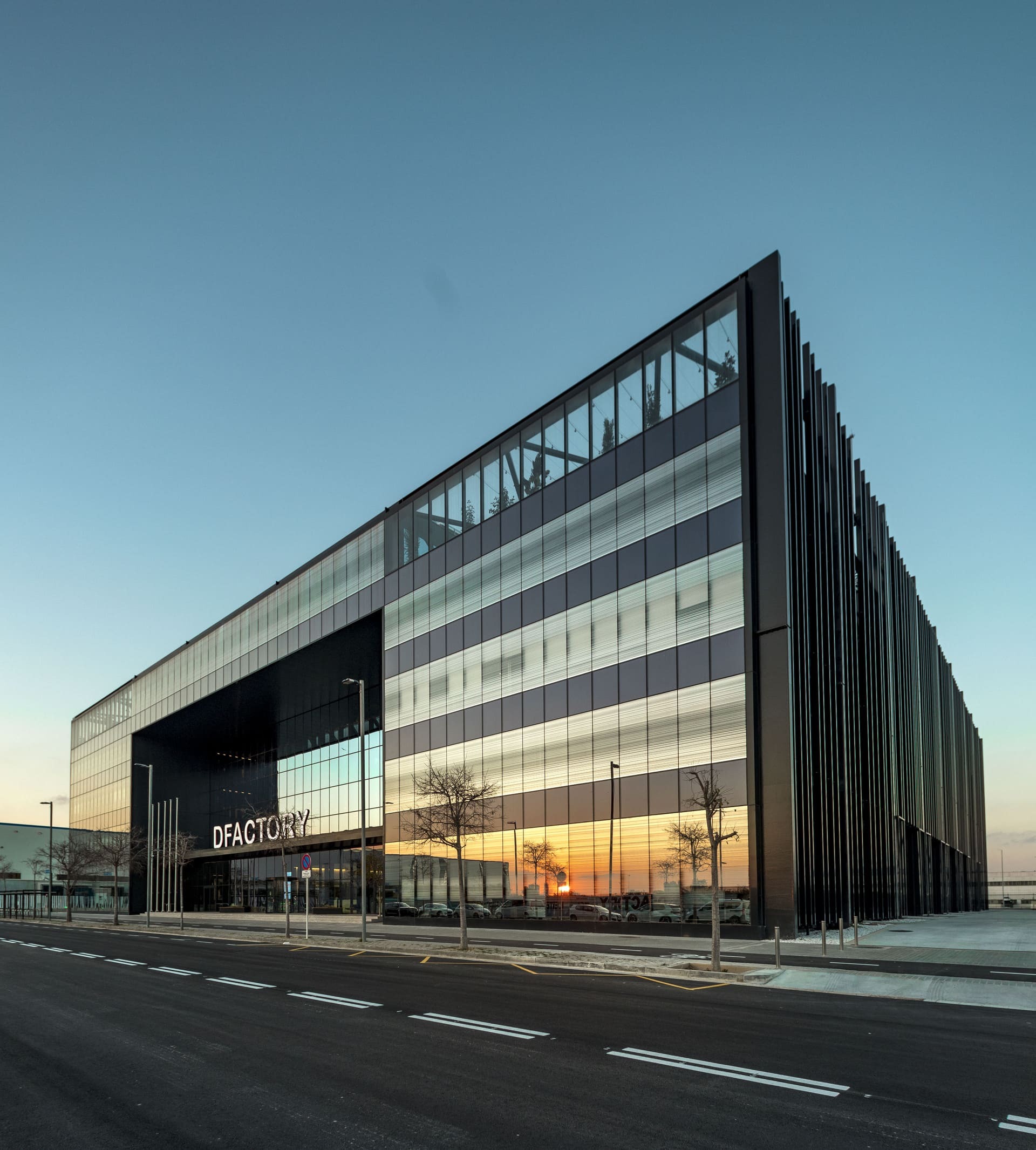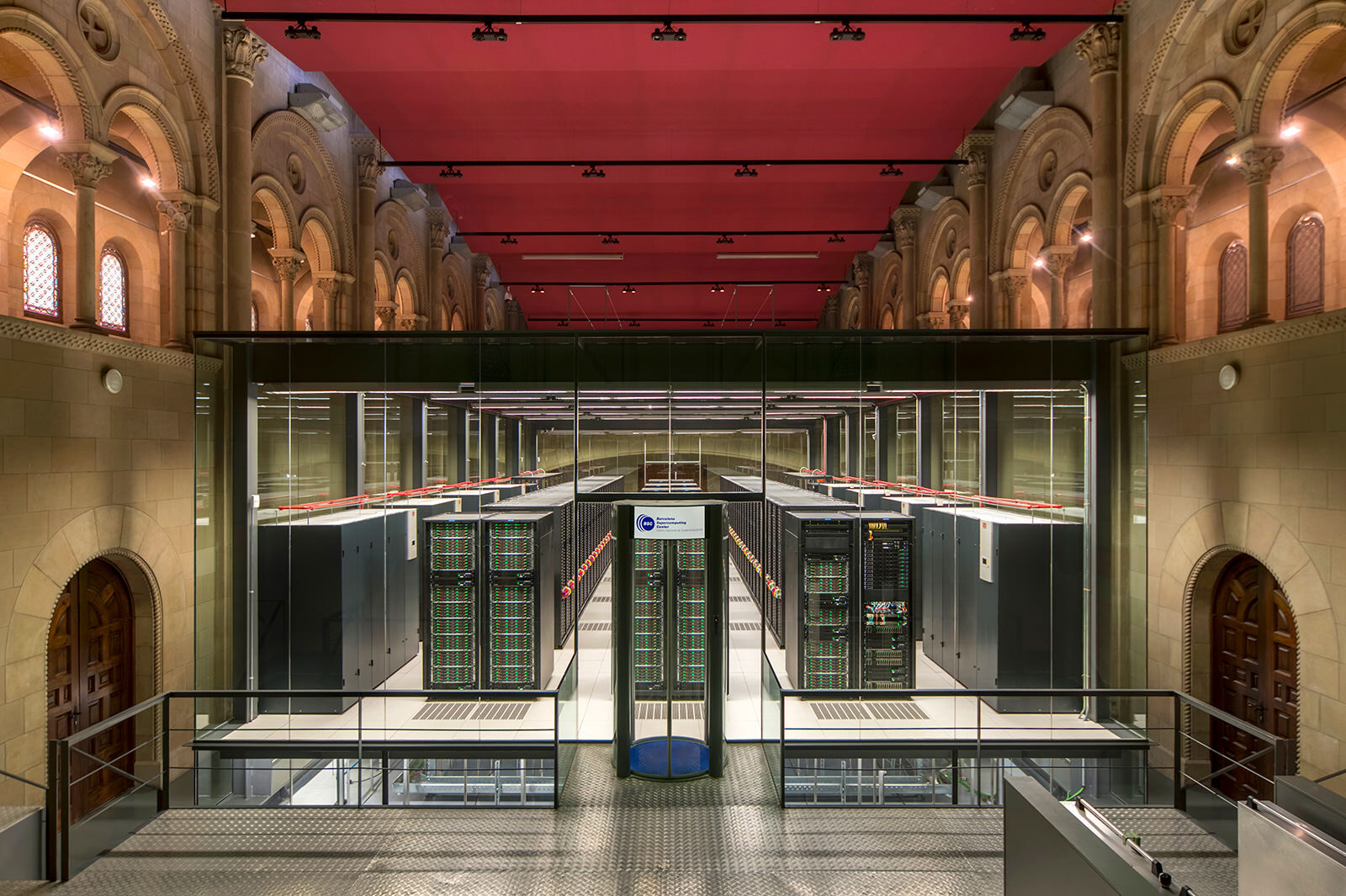On 16 May, representatives of the AIR Institute (DIGIS3 coordinating entity)and the Institute for Business Competitiveness of Castilla y León -ICE- (partner DIGIS3), representing the entire consortium of DIGIS3entities, took part in the first meeting of national EDIHs. The event took place in Barcelona, in person, at the offices of ACCIÓ, the Agency for Business Competitiveness of the Government of Catalonia, which is the coordinator of all the Spanish EDIHs during the year 2023.


The event aimed to bring together all the national EDIHs, both those that have been granted European funding and those that have obtained the Seal of Excellence of the European DIH programme. In total, 21 entities were present.
Agenda
The event agenda was as follows:
10:00 Institutional welcome
Mr. Oriol Alcoba, Director General of Industry, Generalitat de Catalunya.
Ms. María Muñoz, Director General of Industry and SMEs.
10:30 Presentation of the Digital Transformation Accelerator
Mr. Yves Paindaveine, European Commission
Mr. David Vidal, Director of the Digital Transformation Accelerator (online)
10:45 PADIH Call (implementation status and practical information).
11:30 Coffee break
11:45 Presentation of each EDIH
13:30 Refrigerio Networking
14:30 Event conclusion
15:00 Visit to D-Factory
16:45 Visit to the Barcelona Supercomputing Center
The course of the meeting
Following the institutional welcome and the words spoken by the attending authorities, European Commission. The EC official, Yves Paindaveine, highlighted the key elements of the DIGITAL programme and the fundamental role of the EDIHs that form part of the European network in the digital transformation of the business fabric and public administrations of each Member State. He also underscored the potential of the EDIHs network for the exchange of skills and technologies, making it a very important catalyst between companies and universities.
David Vidal, representing the DTA, pointed to the technical aspects to be taken into account by the EDIHs, highlighting the multiple tools, resources and support provided by the European Commission to all the entities in the network for better project management and provision of services.
Regarding the presentation of the staff of the Ministry of Industry, Trade and Tourism, as well as EOI, the main features of the PADIH Programme (Support Programme for Digital Innovation Hubs) were reviewed, drawing a distinction between the two parallel calls launched to support SMEs wishing to innovate through the implementation of digital technologies (grants in kind, services provided by EDIHs as collaborating entities), as well as Digital Innovation Hubs in Spain (Direct Subsidy).
The steps to be taken in both calls were shown and, finally, all the doubts raised by the attendees during the presentation were solved.
After an enjoyable coffee break, which was an opportunity to generate contacts and engage in conversations that may lead to future collaborations, the event resumed, giving way to the presentations of each of the EDIHs. In these interventions, all the attendees were given details of each entity in terms of structure, services, financing, and past and future projects. Each speaker highlighted the strengths of their consortium, its composition, as well as the technologies and sectors of specialisation. In all cases, there was a great willingness to collaborate, showing great predisposition to establish and consolidate relationships for the duration of the projects (2023-2025).
After taking advantage of the lunch to share impressions and opinions, ACCIÓ organised visits to two one-of-a-kind infrastructures located in Barcelona.
DFACTORY
DFactory was conceived with the aim of becoming a HUB for the creation of a system that drives the promotion and development of Industry 4.0. A tool that drives the transformation of the Spanish productive framework and supports companies during their digitisation process.
Promoted and managed by the Consorci de la Zona Franca de Barcelona, it was created with the aim of making Barcelona the centre of innovation 4.0 in southern Europe. It also promotes the creation of an ecosystem to attract talent, technology and investment in a unique space that brings together the most innovative companies and the most cutting-edge technological projects.
A representative of the LEITAT Technology Centre guided the visitors through the facilities, as well as the philosophy and management of this HUB.

Barcelona Supercomputing Center–Centro Nacional de Supercomputación
The Barcelona Supercomputing Center-Centro Nacional de Supercomputación (BSC-CNS) is the national supercomputing centre in Spain. It specialises in high-performance computing (HPC) and manages the MareNostrum, one of the most powerful supercomputers in Europe, located in the chapel of the Girona Tower.
The BSC-CNS is at the service of the international scientific community and industry requiring HPC services. Its multidisciplinary research team and its computational facilities (which could be seen first-hand, guided by one of its employees) - including the MareNostrum- make the BSC an international centre of excellence in e-Science.

Iniciativa DIGIS3. Servicios.
DIGIS3 is a European Digital Innovation Hub (EDIH) project supported by the European Commission. The consortium focuses on cohesion through comprehensive support to users, facilitating their access to specialised technical knowledge and experimentation environments. It acts as a digital one-stop-shop whose central core of knowledge and training is structured around Trustworthy Artificial Intelligence, High Performance Computing and Advanced Digital Skills (IoT, 5G, additive manufacturing...).
For more information about the DIGIS3 HUB go to: https://www.digis3.eu.